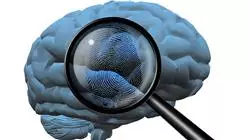University certificate
Scientific endorser

The world's largest faculty of psychology”
Introduction to the Program
This Professional master’s degree will broaden your horizons as a psychologist and will allow you to grow personally and professionally"

This Professional master’s degree provides extensive knowledge in advanced models and techniques in community health and social intervention. For this, the professional will have a faculty that stands out for its extensive professional experience in the different areas in which psychology is developed and in the different sectors of the population.
With this program you will develop the necessary skills to act in different application contexts such as the promotion of volunteering and community development; gender diversity and equal opportunity policies; intervention in family diversity and families at risk; action in the criminological context; prevention and treatment of violence, mistreatment and abuse; and public health strategies, prevention and promotion, among others.
Throughout this program, the professional will go through all the current approaches in the work of the community health and social intervention psychologist. The correct approach to psychopathological disorders; knowing the characteristics and fundamental aspects of the psychological interview or knowing how to analyze needs and demands, will be many of the work and study topics that you will be able to integrate in your training with this complete program.
TECH will not only take you through the theoretical knowledge we offer, but will show you another way of studying and learning, more organic, simpler and more efficient. We will work to keep the professional motivated and to create a passion for learning, helping them to think and develop critical thinking.
A high-level step that will become a process of improvement, not only on a professional level, but also on a personal level.
A program created for professionals who aspire for excellence, and that will enable you to acquire new skills and strategies easily and effectively"
This Professional master’s degree in Community Health Psychology and Social Intervention contains the most complete and up-to-date program on the market. The most important features include:
- The development of 100 practical cases presented by experts
- The graphic, schematic, and practical contents provide students with scientific and practical information on the disciplines that are essential for Psychologist
- New developments and innovations in the different areas of psychology
- Practical exercises where self-assessment can be used to improve learning
- Algorithm-based interactive learning system for decision-making in the situations that are presented to the student
- Special emphasis on cutting-edge methodologies
- Theoretical lessons, questions to the expert, debate forums on controversial topics, and individual reflection assignments
- Content that is accessible from any fixed or portable device with an internet connection
Access the deep knowledge of Community Health Psychology and Social Intervention and its multiple implications, in a complete program created to propel you to another professional level"
It includes a very broad teaching staff made up of experts in psychology, who share their work experience in this training, as well as recognized specialists from leading communities and prestigious universities.
The multimedia content, developed with the latest educational technology, will provide the professional with situated and contextual learning, i.e., a simulated environment that will provide an immersive training program designed to train in real situations.
This program is designed around Problem-Based Learning, whereby the student must try to solve the different professional practice situations that arise throughout the program. For this purpose, the professional will be assisted by an innovative interactive video system created by renowned and experienced psychology experts.
Increase your confidence as a psychologist, updating your knowledge through this Professional master’s degree"

A Professional master’s degree that will allow you to apply the knowledge you acquire in a practical way, with an approach focused on real and contextual learning"
Why study at TECH?
TECH is the world’s largest online university. With an impressive catalog of more than 14,000 university programs available in 11 languages, it is positioned as a leader in employability, with a 99% job placement rate. In addition, it relies on an enormous faculty of more than 6,000 professors of the highest international renown.

Study at the world's largest online university and guarantee your professional success. The future starts at TECH”
The world’s best online university according to FORBES
The prestigious Forbes magazine, specialized in business and finance, has highlighted TECH as “the world's best online university” This is what they have recently stated in an article in their digital edition in which they echo the success story of this institution, “thanks to the academic offer it provides, the selection of its teaching staff, and an innovative learning method aimed at educating the professionals of the future”
A revolutionary study method, a cutting-edge faculty and a practical focus: the key to TECH's success.
The most complete study plans on the university scene
TECH offers the most complete study plans on the university scene, with syllabuses that cover fundamental concepts and, at the same time, the main scientific advances in their specific scientific areas. In addition, these programs are continuously being updated to guarantee students the academic vanguard and the most in-demand professional skills. In this way, the university's qualifications provide its graduates with a significant advantage to propel their careers to success.
TECH offers the most comprehensive and intensive study plans on the current university scene.
A world-class teaching staff
TECH's teaching staff is made up of more than 6,000 professors with the highest international recognition. Professors, researchers and top executives of multinational companies, including Isaiah Covington, performance coach of the Boston Celtics; Magda Romanska, principal investigator at Harvard MetaLAB; Ignacio Wistumba, chairman of the department of translational molecular pathology at MD Anderson Cancer Center; and D.W. Pine, creative director of TIME magazine, among others.
Internationally renowned experts, specialized in different branches of Health, Technology, Communication and Business, form part of the TECH faculty.
A unique learning method
TECH is the first university to use Relearning in all its programs. It is the best online learning methodology, accredited with international teaching quality certifications, provided by prestigious educational agencies. In addition, this disruptive educational model is complemented with the “Case Method”, thereby setting up a unique online teaching strategy. Innovative teaching resources are also implemented, including detailed videos, infographics and interactive summaries.
TECH combines Relearning and the Case Method in all its university programs to guarantee excellent theoretical and practical learning, studying whenever and wherever you want.
The world's largest online university
TECH is the world’s largest online university. We are the largest educational institution, with the best and widest online educational catalog, one hundred percent online and covering the vast majority of areas of knowledge. We offer a large selection of our own degrees and accredited online undergraduate and postgraduate degrees. In total, more than 14,000 university degrees, in eleven different languages, make us the largest educational largest in the world.
TECH has the world's most extensive catalog of academic and official programs, available in more than 11 languages.
Google Premier Partner
The American technology giant has awarded TECH the Google Google Premier Partner badge. This award, which is only available to 3% of the world's companies, highlights the efficient, flexible and tailored experience that this university provides to students. The recognition as a Google Premier Partner not only accredits the maximum rigor, performance and investment in TECH's digital infrastructures, but also places this university as one of the world's leading technology companies.
Google has positioned TECH in the top 3% of the world's most important technology companies by awarding it its Google Premier Partner badge.
The official online university of the NBA
TECH is the official online university of the NBA. Thanks to our agreement with the biggest league in basketball, we offer our students exclusive university programs, as well as a wide variety of educational resources focused on the business of the league and other areas of the sports industry. Each program is made up of a uniquely designed syllabus and features exceptional guest hosts: professionals with a distinguished sports background who will offer their expertise on the most relevant topics.
TECH has been selected by the NBA, the world's top basketball league, as its official online university.
The top-rated university by its students
Students have positioned TECH as the world's top-rated university on the main review websites, with a highest rating of 4.9 out of 5, obtained from more than 1,000 reviews. These results consolidate TECH as the benchmark university institution at an international level, reflecting the excellence and positive impact of its educational model.” reflecting the excellence and positive impact of its educational model.”
TECH is the world’s top-rated university by its students.
Leaders in employability
TECH has managed to become the leading university in employability. 99% of its students obtain jobs in the academic field they have studied, within one year of completing any of the university's programs. A similar number achieve immediate career enhancement. All this thanks to a study methodology that bases its effectiveness on the acquisition of practical skills, which are absolutely necessary for professional development.
99% of TECH graduates find a job within a year of completing their studies.
Professional Master's Degree in Psychology of Community Health and Social Intervention
Although we speak of the mental health of the individual as the primary axis of psychotherapeutic action, we should not overlook the fact that the approach to psychic and emotional balance is also a collective sphere. How can we speak of internal wellbeing when a population is in a state of vulnerability and exclusion? It is here where the sociological component enhances the work of the professional. For this reason, TECH Global University has devised the Professional Master's Degree in Community Health Psychology and Social Intervention: a detailed look at those psychosocial environments that must be explored if you want to excel in your career: family, community and human development, for example. With this offer, structured in an innovative online modality, we give you the opportunity to add vital competencies as a constructive support to the current times where there is often a latent crisis in mental health on a massive scale. Because the work of the psychologist must transcend borders, here in the best digital university, we help you to achieve it.
Community and social psychology: an essential axis.
"For any kind of social management, it is of great practical importance that quasi-stationary equilibrium levels can be changed in two ways: by adding forces in the desired direction or by decreasing the opposing forces" words of psychologist Kurt Lewin, recognized as the founder of social psychology for his work on group dynamics. The progress of a community, from a globalized approach, is subject to the sum of elements that point towards a common goal. That is why this postgraduate course represents an essential advantage if you want to give more dimension and depth to your psychological intervention. Through a consolidated group of experts in the field and totally flexible online classes, you will be able to access a range of exclusive knowledge that covers concepts such as: group counseling, gender violence, family mediation, addiction management, legal psychology, among others. With TECH, you have all the tools at hand to enhance your career and contribute to optimal social development.







